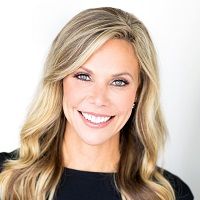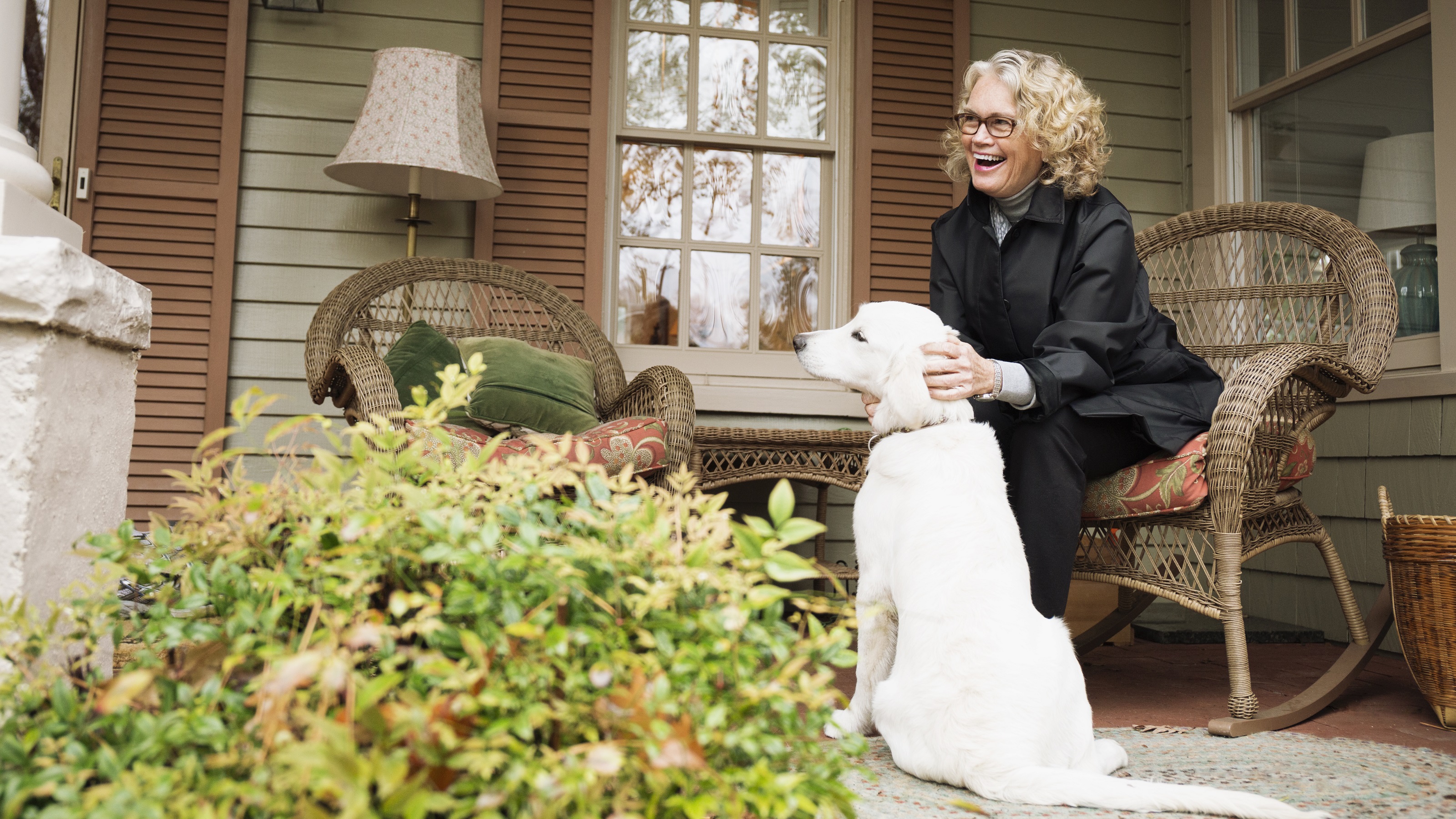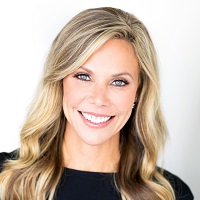Home Equity Could Be Saving Grace for Struggling Retirees
Retirees are sitting on historic levels of home equity, while many have little saved for retirement. Their houses could fund living expenses and pay for long-term care, among other things.


Profit and prosper with the best of Kiplinger's advice on investing, taxes, retirement, personal finance and much more. Delivered daily. Enter your email in the box and click Sign Me Up.
You are now subscribed
Your newsletter sign-up was successful
Want to add more newsletters?

Delivered daily
Kiplinger Today
Profit and prosper with the best of Kiplinger's advice on investing, taxes, retirement, personal finance and much more delivered daily. Smart money moves start here.

Sent five days a week
Kiplinger A Step Ahead
Get practical help to make better financial decisions in your everyday life, from spending to savings on top deals.

Delivered daily
Kiplinger Closing Bell
Get today's biggest financial and investing headlines delivered to your inbox every day the U.S. stock market is open.

Sent twice a week
Kiplinger Adviser Intel
Financial pros across the country share best practices and fresh tactics to preserve and grow your wealth.

Delivered weekly
Kiplinger Tax Tips
Trim your federal and state tax bills with practical tax-planning and tax-cutting strategies.

Sent twice a week
Kiplinger Retirement Tips
Your twice-a-week guide to planning and enjoying a financially secure and richly rewarding retirement

Sent bimonthly.
Kiplinger Adviser Angle
Insights for advisers, wealth managers and other financial professionals.

Sent twice a week
Kiplinger Investing Weekly
Your twice-a-week roundup of promising stocks, funds, companies and industries you should consider, ones you should avoid, and why.

Sent weekly for six weeks
Kiplinger Invest for Retirement
Your step-by-step six-part series on how to invest for retirement, from devising a successful strategy to exactly which investments to choose.
So far, 2023 news headlines have been dominated by an erratic stock market, persistent inflation, economic uncertainty and unidentified flying objects.
Yet, not nearly enough is being written about a gathering storm quickly gaining momentum in the United States — Americans are retiring with inadequate savings to get them through their golden years at an alarming rate. Their home equity could be what helps them make ends meet.
According to the U.S. Census Bureau, 10,000 Baby Boomers are retiring every day, and most are doing so with little to no savings. A 2019 Federal Reserve report found that more than 40% of retirees are entering this stage of their life still making monthly mortgage payments. This monthly obligation can be a tremendous burden for some retirees on fixed incomes. Then there is the uncertainty of the social safety net.
From just $107.88 $24.99 for Kiplinger Personal Finance
Become a smarter, better informed investor. Subscribe from just $107.88 $24.99, plus get up to 4 Special Issues

Sign up for Kiplinger’s Free Newsletters
Profit and prosper with the best of expert advice on investing, taxes, retirement, personal finance and more - straight to your e-mail.
Profit and prosper with the best of expert advice - straight to your e-mail.
The future of Social Security
Depending on whom you ask, Congress may or may not be considering cuts to Social Security, which has already raised the full retirement age to 67 for all retirees this year. Regardless, Social Security alone will likely not be enough for most retirees to cover their living costs, medical care, housing, retirement aspirations, general necessities and comfort. The non-partisan Center on Budget and Policy Priorities reported that the average retirement benefit in January 2022 was just $19,370. Considering that the federal poverty level in 2022 was $18,310 for a family of two, it’s clear that most people will have a difficult retirement if they are relying exclusively on Social Security.
Needless to say, the data is concerning, but the situation is not unfixable if we embrace more modern approaches to funding our non-working years. Times have changed, and the historical playbook is no longer working for many. Retirees are literally sitting in an incredibly powerful and untapped resource — their home.
According to the U.S. Census, nearly 80% of those over 65 own their own home, while the Joint Center for Housing Studies of Harvard University found that older homeowners, on average, have an estimated $143,500 in home equity. Some estimates indicate that older Americans as a demographic are sitting on nearly $12 trillion in housing wealth.
The home may indeed be the solution for many struggling retirees who can access their home equity, either through a reverse mortgage or other home equity solution, to fund living expenses, pay for long-term care, college tuition, travel plans and all sorts of retirement adventures. And some are using their home equity loan proceeds, which are often income-tax-free, to invest, pay taxes on a Roth IRA conversion and other asset-leveraging maneuvers.
Home equity solutions like reverse mortgages can also eliminate monthly mortgage payments. This can dramatically improve cash flow and provide breathing room — all while allowing the borrower to maintain ownership of the home and continue living there. In short, it’s putting the house to work for the borrower instead of the other way around.
So, why aren’t more people accessing their home equity that they’ve spent a lifetime accruing?
The home equity riddle
A 2016 Fannie Mae National Housing Survey found that 65% of retired homeowners 55 and older planned to stay in their homes for the rest of their lives, but 47% said they would rather sell those same homes and downsize instead of borrowing against the equity to be able to remain in the home. But downsizing isn’t always an option for people connected to family and the community where they live, not to mention the costs associated with moving and the ongoing affordability challenges the country faces, which are particularly difficult for those on fixed incomes.
The benefits of aging in place also shouldn’t be overlooked. Researchers are increasingly finding that those who age in place are more likely to avoid physical and mental declines and have better health outcomes.
For many years, much of the American public viewed home equity extraction tools as loans of last resort. And at one point in time, that was probably true. Cash-strapped homeowners were early adopters of home equity solutions if, for no other reason, than out of necessity and with few options. But times have changed. More affluent borrowers are increasingly turning to home equity solutions, even when their homes are valued in the millions. These are not individuals borrowing from an unstable financial position, but rather, a financially savvy population who view their home as an asset, not an heirloom.
Home is where the heart is
Another impediment to accessing home equity is the emotions tied to the home. After all, this is where memories were made, first steps were taken, and holidays celebrated. The thought of taking out a loan against that equity can stir strong feelings, as if the loan were being leveraged against the memories themselves. But this is actually an opportunity to make more memories for decades to come in the same home they know and love, and they can do so with the financial peace of mind that they are prepared for the future and all the joys and challenges it may bring.
America’s retirement crisis won’t be solved quickly or easily, and it won’t resemble the retirement of the past when older people left the workforce with no debt, no mortgage balance, reliable pensions and confidence that Social Security would provide for them. The modern retirement is going to require a more creative playbook.
Overlooked options of the past that were dismissed should be revisited with fresh eyes and an acknowledgment of the new reality seniors face. One idea whose time has come is the power of home equity. This untapped resource may be the key to retiring with fewer worries, financial stability, dignity and a brighter future.
Profit and prosper with the best of Kiplinger's advice on investing, taxes, retirement, personal finance and much more. Delivered daily. Enter your email in the box and click Sign Me Up.

Kristen Sieffert is a purpose-driven leader, passionate about finding ways to inspire others to dream bigger and create the lives of their dreams. In her current role as president of Finance of America Companies Inc., Kristen is committed to helping seniors live their retirement years with financial flexibility by putting the home at the center of the modern retirement.
-
 The New Reality for Entertainment
The New Reality for EntertainmentThe Kiplinger Letter The entertainment industry is shifting as movie and TV companies face fierce competition, fight for attention and cope with artificial intelligence.
-
 Stocks Sink With Alphabet, Bitcoin: Stock Market Today
Stocks Sink With Alphabet, Bitcoin: Stock Market TodayA dismal round of jobs data did little to lift sentiment on Thursday.
-
 Betting on Super Bowl 2026? New IRS Tax Changes Could Cost You
Betting on Super Bowl 2026? New IRS Tax Changes Could Cost YouTaxable Income When Super Bowl LX hype fades, some fans may be surprised to learn that sports betting tax rules have shifted.
-
 The 4 Estate Planning Documents Every High-Net-Worth Family Needs (Not Just a Will)
The 4 Estate Planning Documents Every High-Net-Worth Family Needs (Not Just a Will)The key to successful estate planning for HNW families isn't just drafting these four documents, but ensuring they're current and immediately accessible.
-
 Love and Legacy: What Couples Rarely Talk About (But Should)
Love and Legacy: What Couples Rarely Talk About (But Should)Couples who talk openly about finances, including estate planning, are more likely to head into retirement joyfully. How can you get the conversation going?
-
 How to Get the Fair Value for Your Shares When You Are in the Minority Vote on a Sale of Substantially All Corporate Assets
How to Get the Fair Value for Your Shares When You Are in the Minority Vote on a Sale of Substantially All Corporate AssetsWhen a sale of substantially all corporate assets is approved by majority vote, shareholders on the losing side of the vote should understand their rights.
-
 How to Add a Pet Trust to Your Estate Plan: Don't Leave Your Best Friend to Chance
How to Add a Pet Trust to Your Estate Plan: Don't Leave Your Best Friend to ChanceAdding a pet trust to your estate plan can ensure your pets are properly looked after when you're no longer able to care for them. This is how to go about it.
-
 Want to Avoid Leaving Chaos in Your Wake? Don't Leave Behind an Outdated Estate Plan
Want to Avoid Leaving Chaos in Your Wake? Don't Leave Behind an Outdated Estate PlanAn outdated or incomplete estate plan could cause confusion for those handling your affairs at a difficult time. This guide highlights what to update and when.
-
 I'm a Financial Adviser: This Is Why I Became an Advocate for Fee-Only Financial Advice
I'm a Financial Adviser: This Is Why I Became an Advocate for Fee-Only Financial AdviceCan financial advisers who earn commissions on product sales give clients the best advice? For one professional, changing track was the clear choice.
-
 I Met With 100-Plus Advisers to Develop This Road Map for Adopting AI
I Met With 100-Plus Advisers to Develop This Road Map for Adopting AIFor financial advisers eager to embrace AI but unsure where to start, this road map will help you integrate the right tools and safeguards into your work.
-
 The Referral Revolution: How to Grow Your Business With Trust
The Referral Revolution: How to Grow Your Business With TrustYou can attract ideal clients by focusing on value and leveraging your current relationships to create a referral-based practice.